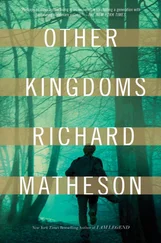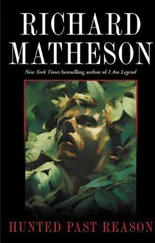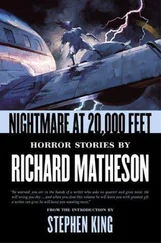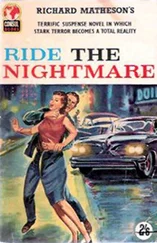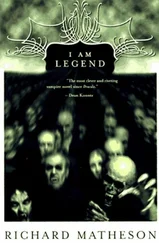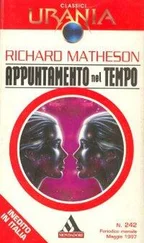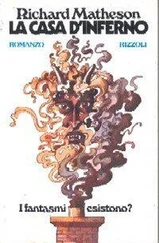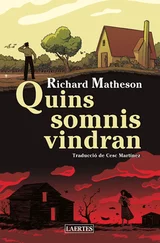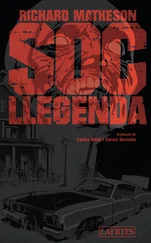Then the square began to waver before his eyes and there was a terrible burning in his chest. Blinking, he looked down at himself and saw red blood spilling out between his clutching fingers. He tried to speak but he couldn’t; his throat was clogged.
He looked up again dizzily and watched the wave of blackness rush at him across the square, break over him, followed by another and another.
That was when the buckboard reached the square. The woman in it dragged back the reins and braked suddenly, standing up. The people coming out from behind locked doors could see the look of stupefaction on her face. They watched how she half climbed, half fell from the buckboard and started walking across the square, then broke into a stiff, weaving run.
They saw too, the Reverend Bond’s wife come rushing down St. Virgil Street with Louisa Harper. They watched the white-faced girl as she stood on the edge of the square, staring open-mouthed at the four figures on it. And they wondered.
He was still on his knees when Julia reached him. Both his arms were crossed tightly over his chest and stomach like those of a little boy who had eaten too many green apples and fallen sick. His blood was running over his arms and dripping on the ground.
She stood before her husband for several moments, one hand covering her lips, in her throat a sickened moaning as she looked down at him.
Abruptly, then, she gasped his name and fell to her knees beside him.
Slowly, in tiny, jerking movements, he raised his face to her. It was the face of a man who could not understand what had happened to him. For almost ten seconds, he stared at her, eyes dazed and unmoving, mouth hanging open.
Then, without a sound, he fell against her, dead.
She held his body in her arms, her face distorted by grief, dry sobs stabbing at her throat, hands stroking numbly at his back. She would remember for the rest of her life how it felt to have his warm blood running across her hands like water.
Fifty yards away, a father was leading his son, speaking to him in a stiff, proud voice.
“You’re a brave boy,” he said. “You did what had to be done. You’re a very brave boy. We’re all proud of you.”
He failed to notice the look his son directed at him; one of sickened hatred and disgust.
He only became aware of what his son was feeling when Robby jerked his left arm free and staggered away, moving past Louisa without a word, his face a rigid mask of pain as he strode unevenly across the square.
It was three minutes after three P.M., September 14, 1879. The end of the third day.
__________________________
NOTE:If you purchased this book without a cover, you should be aware that this book is stolen property. It was reported as “unsold and destroyed” to the publisher, and neither the author nor the publisher has received any payment for this “stripped book.”
This is a work of fiction. All of the characters, organizations, and events portrayed in this novel are either products of the author’s imagination or are used fictitiously.
THE GUN FIGHT
Copyright © 1993 by RXR, Inc.
All rights reserved.
A Forge Book
Published by Tom Doherty Associates, LLC
175 Fifth Avenue
New York, NY 10010
www.tor-forge.com
Forge® is a registered trademark of Tom Doherty Associates, LLC.
ISBN 978-0-7653-6228-5
First Forge Edition: November 2009
Printed in the United States of America

